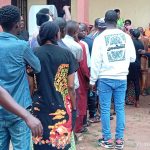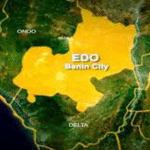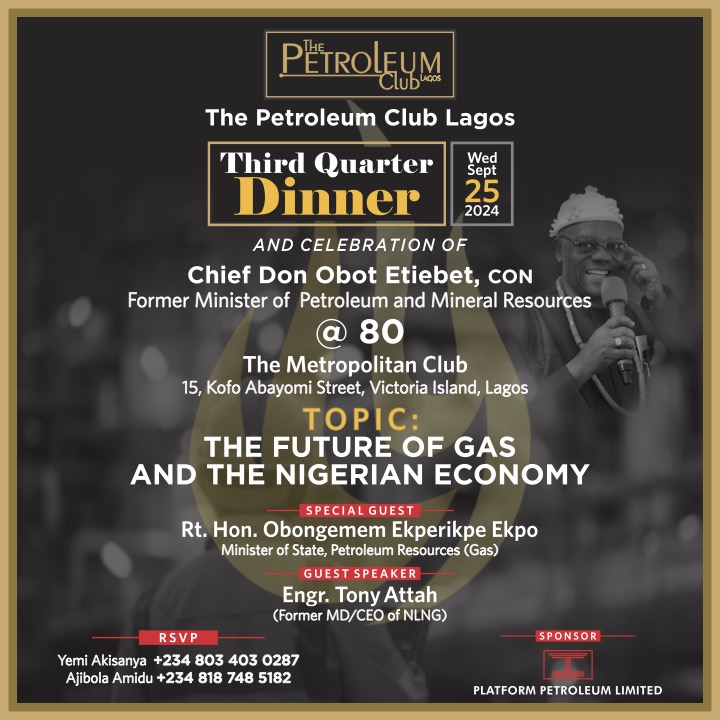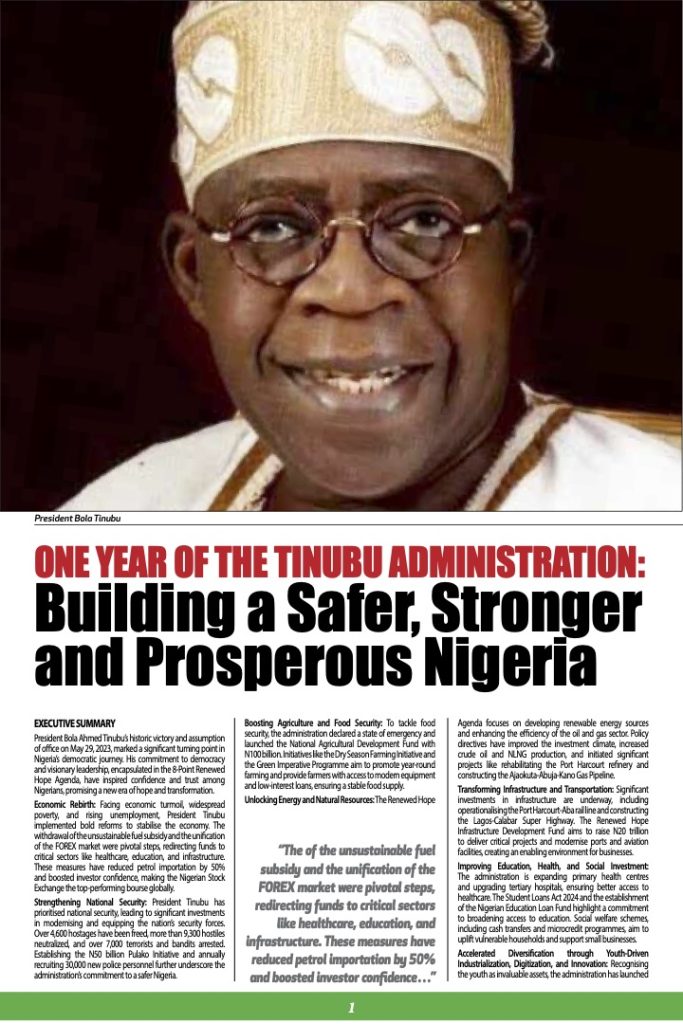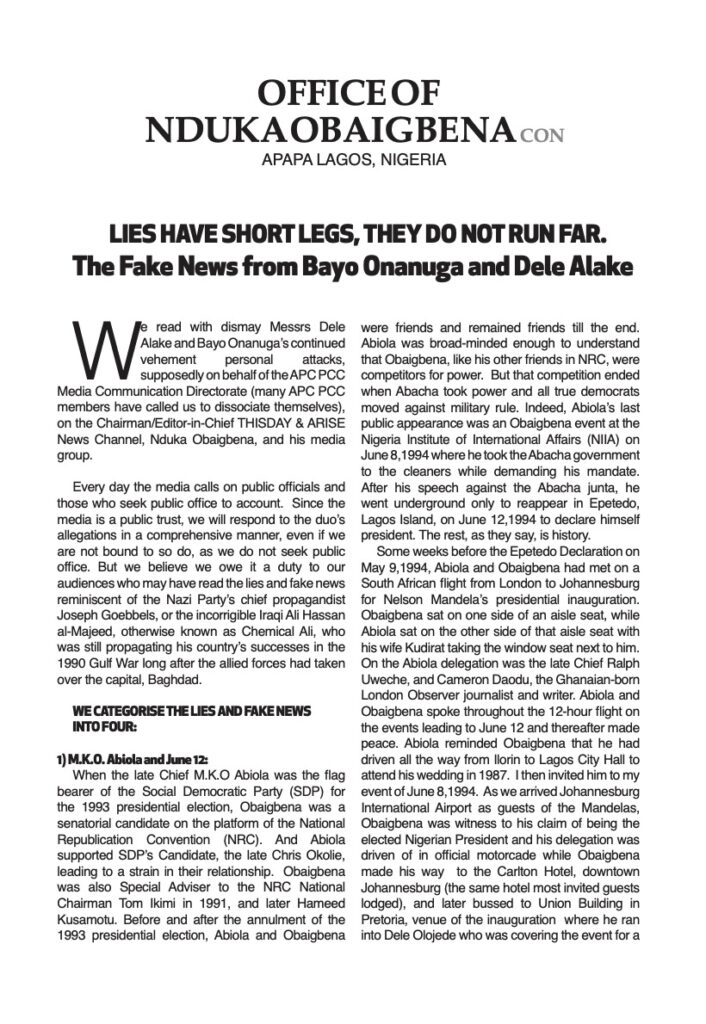Latest Headlines
The Limits of the Right to Protest

The Advocate By Onikepo Braithwaite Onikepo.braithwaite@thisdaylive.com
Stating the Obvious
Before I delve into the legal argument of this discourse, I want to ask whether we really need a protest to state what is as obvious as the sky being blue, that Nigerians are suffering tremendously under the weight of heavy economic hardship. The essence of a protest, is to publicly declare the people’s dissatisfaction about one thing or the other. The new slogan is, ‘#Ebin pa wa’! (We are hungry)! And, I think that even aliens living on Pluto or Neptune, are aware of the fact that Nigerians are dissatisfied with the current state of economic hardship, and that as a result of decades of bad governance, corruption and mismanagement of funds etc, Nigerians find themselves at one of their lowest ebbs.
Though it would be unfair to put the entire blame for all our woes on the Tinubu administration, or to expect them to perform magic in one year after decades of untold damage, being in office at this particular time, Government has a primary duty vis-à-vis the people’s welfare, and Nigerians expect them to start to repair the damage, not compound it. In any event, I think the threat of this Protest should be more than enough indication for any right thinking government to ginger up, act fast and look for more ways to alleviate the sufferings of Nigerians. Yes, we are all aware of the saying that ‘Rome wasn’t built in a day’, but it was built, wasn’t it?
Be that as it may, I don’t think it’s asking too much, to enquire as to why a protest should even be scheduled to last for a long period of 10 days, thereby making one wonder whether one of the aims of the organisers isn’t to disrupt normal activities. My worry about these kind of protests and strikes is that, at the end of the day, the masses whose interest the Protesters claim to be advancing, are the ones who ultimately suffer the most during and as a result of these events.
Who Will Lose?
Of what benefit will it be, or what succour will it give to Nigerians, that a country whose economy is already in such a precarious and fragile condition, will probably be ground to a halt for 10 days because of a Protest scheduled to hold from August 1 – 10? It may be counter-productive, and just end up causing more suffering for the people. There are those who literally earn a ‘daily bread’, that is to say, they feed their families from their daily earnings; for example, daily/casual labourers on construction sites. What happens, when these sites are shut down during the protest? These workers and their families may starve, without their daily income.
Again, can Nigeria really afford to lose another N1.5 trillion or more, like it lost as a result of the #EndSARS Protest in 2020? At the end of the day, it will not be the Government functionaries that will suffer as a result of this loss, but the people on the street, either from not being able to operate during the protest thereby losing revenue and income, or from losses caused by looting and damage. For instance, I read in a news report that during the #EndSARS Protest, 80 BRT buses worth almost N4 billion were burnt by hoodlums in Lagos. Who suffered from this attack? The Government Officials in Abuja, or the masses/commuters in Lagos? Talk about cutting off your nose, to spite your face! After #EndSARS, tears fell from my eyes as I watched an interview of some people whose buildings had been destroyed, and businesses looted during #EndSARS. They sounded like people without hope, not knowing how they would be able to start their businesses afresh.
Many Issues to Address
Don’t get me wrong, like majority of Nigerians, I am one of those who is being crushed under the pressure of hardship, and I most certainly add my voice and call on Government to immediately take whatever steps that are necessary, to alleviate the suffering of Nigerians. Removing the fuel subsidy and the resulting inflation flowing therefrom, while almost simultaneously increasing the electricity tariff, some taxes, etc, appears to be just too many difficulties for Nigerians to face at the same time, especially when productivity hasn’t significantly increased.
For me, corruption has always been one of our biggest problems in Nigeria; for the past decade or more, insecurity has also become a huge problem; rising food insecurity as a result of insecurity; not putting round pegs in round holes in government positions to run the affairs of the country; in 2018, during the Buhari administration, Nigeria was named the Poverty Capital of the world; high unemployment and our warped remuneration structure, are all matters that must be addressed without delay.
Someone I know who has two first degrees and a Masters, returned to Nigeria to settle down. After completing NYSC, the remuneration at the job was less than N300,000 per month after tax! Needless to say, the person decided to seek greener pastures outside Nigeria, in a country where salaries are more commensurate to qualifications. A Medical Doctor who saves lives almost on a daily basis, doing Housemanship in Nigeria earns about N190,000 per month, just a bit more than Drivers who earn up to N150,000 per month these days! Many in the Legislature and the Executive, who have little or no education or qualifications, and are doing nothing but making Nigeria perish for their lack of knowledge, earn fabulous salaries and allowances. There is definitely something terribly wrong with our remuneration structure in Nigeria, and Government needs to address this urgently. In fact, it appears that our society encourages us to be unskilled and/or uneducated, despite Section 18 of the Constitution which sets out the State’s educational objectives, as people in these categories seem to fare better in Nigeria! Is that not why Nigerian graduates, are now driving Ubers as their occupation?
Impending ‘Days of Rage’ Protest
The title of the upcoming Protest, “Days of Rage” (DOR), is not encouraging at all! Nor is the name of one of the groups that has applied to protest – Take it Back Movement! One wonders what exactly the group wants to take back? Any sensible government would however, take a cue from this unattractive protest theme, to immediately swing into action, not necessarily just to stop the protest, but to address the well known, valid complaints of the people.
According to the Oxford Online Dictionary, the word ‘Rage’ has two meanings: 1) violent uncontrollable anger; 2) a vehement desire or passion. While we would all like to believe that DOR connotes the latter meaning of ‘Rage’, in the context that the Protesters simply want to display their vehement desire for good governance et al, the fact cannot be ignored that DOR could also mean a manifestation of the first violent, angry meaning, particularly stemming from the #EndSARS and the recent Kenyan example.
The Legal Argument
I know that those who are angling for the protest against bad governance and economic hardship to hold, may not want to hear this, but those who are rightfully using the rights to freedom of expression, assembly, and association guaranteed by Sections 39(1) & 40 of the 1999 Constitution of the Federal Republic of Nigeria (as amended in 2023)(the Constitution) to support the fact that DOR is lawful, should be aware that though the Constitution unequivocally guarantees us these rights, they are not absolute; they are limited by Section 45 of the same Constitution – that is, these freedoms can be limited in the interest of defence, public safety, public interest, public morality, public health, or to protect the rights and freedoms of others. We must not forget the fundamental principle that, ‘my freedom ends where yours begins’. So, for example, is A’s right to protest on Lagos-Ibadan Expressway from August 1-10, greater than B’s right to freedom of movement to go from home in Shagamu to work in Lagos daily, or C’s right to open their shop without fear that it may be looted during that period? While Section 83(4) of the Nigeria Police Act 2020 (NPA) provides that the Police shall provide adequate security to protect Protesters, Section 83(2)(b) thereof also gives the Police the responsibility of upholding and protecting the fundamental rights of not just A, but B & C.
I definitely see issues of public interest and public safety, and protecting the rights of others in this issue of the DOR. If #EndSARS is anything to go by, and can be used as a yardstick being the last big protest that occurred in Nigeria, then the fear that violence can erupt may not necessarily be far fetched. Look at the mayhem caused by the recent protests in Kenya – the looting and destruction; from what we saw during #EndSARS and Kenya, these days, calls to protest in the African neighbourhood, unlike what obtains in Hyde Park Corner, London, means different things to different people. While most may simply want to peacefully voice out their dissatisfaction, hoodlums, criminals and extremists now see it as an opportunity for violence, looting and destruction. And, even there in the UK, blocking part of the M25 Highway and causing a gridlock around Southern England in November 2022, during the ‘Just Stop Oil’ Protest was seen by the Crown Court as crossing the line “from concerned campaigner to fanatic”. One of the Protesters was sentenced to five years imprisonment, while the other four were each sentenced to four year jail terms.
By virtue of Section 14(2)(b) of the Constitution, the primary purpose of Government is the security and welfare of the people. How then, do we balance this duty of Government vis-à-vis the safety and welfare of the people during DOR on one hand, against the right to freedom of expression, assembly and association, on the other? It is trite that, the Police must also protect Protesters (see 83(4) of the NPA). While the duty of the Police is also to maintain and secure public safety (see Section 215(3) & (4) of the Constitution and Sections 4 & 83(1) of the NPA), Sections 5(3) & 83(2)(b) of the NPA gives the Police the additional duty of protecting the fundamental rights of the people, which would obviously include the aforementioned ones related to the right to protest, amongst others.
During #EndSARS, the Police were not only rather ineffective when it came to tackling the criminals that took over the protest and curtailing the violence, they themselves became the prime target of these violent hoodlums, as not only were Police stations targeted, some Police personnel lost their lives in brutal circumstances. While many were unsympathetic to the Police for their losses since the basis of the Protest was to stop their brutality against the Youths, nevertheless, Nigerians were put in a ‘To your tent, O Israel’ situation, where they were left to try and protect their lives and property by themselves, as it took the Police several weeks to return to the streets after that onslaught against them.
Another side of the argument is that, if by virtue of Section 46(1) of the Constitution, an individual who alleges that his fundamental right has been or is likely to be contravened, is entitled to apply to the High Court in his State to seek redress, how much more the Police, who by law is the protector of the fundamental rights of the people, to seek such redress on behalf of the people? Being that it is a protest that is to be carried out nationwide, if I were the Inspector General of Police, the Federal High Court would have been my first port of call to enforce the people’s right to safety, sanctity of the human person, security of property, both Government and private property etc. Lagos is still reeling from the burning of the Lagos High Court, Igbosere, which doubled as a historical monument, being the oldest recognised court building in Nigeria having been built in the 1860s, and the destruction of Lagos State Government’s state-of-the-art DNA Laboratory on Broad Street, during #EndSARS. See also Section 3(a), (e)(iv) & (v) of the Fundamental Rights (Enforcement Procedure) Rules 2009 (FREP), Chapter IV of the Constitution and EFCC v Wolfgang Reinl (2020) LPELR-49387(SC) per Kudirat Motonmori Olatokunbo Kekere-Ekun, JSC.
Conclusion
Whether in a personal or any other type of relationship, I have always been a firm believer in dialogue, mediation, negotiation, conciliation and all manner of peacemaking initiatives, whenever there’s an issue for determination. I believe that the talk of the DOR and the number of heavyweights that have had to delve into this matter, should be enough to show the Government that they need to take very serious cognisance of the lengthy list of complaints of Nigerians, and let the people start to see a turn around forthwith.
Maybe it’s time for Government to designate specific locations that should be used for protests, like National Stadium in Lagos and so on, so that protests do not disturb the normal daily activities of others, and there’s no reason for hoodlums to be able to run riot across town. For instance, why must a protest block a public highway? Can what can be said on a public highway, not be said in a stadium?
All said and done, protest may be lawful; violence is certainly not. While some say Government is simply being proactive by trying to avert any impending crisis, as opposed to being reactive and waiting for it to happen before running around like headless chickens to cleanup what may turn out to be a big mess, pro-Protesters say that the people mustn’t be denied their fundamental right to freedom of speech and assembly. What say you, my dear Readers?


